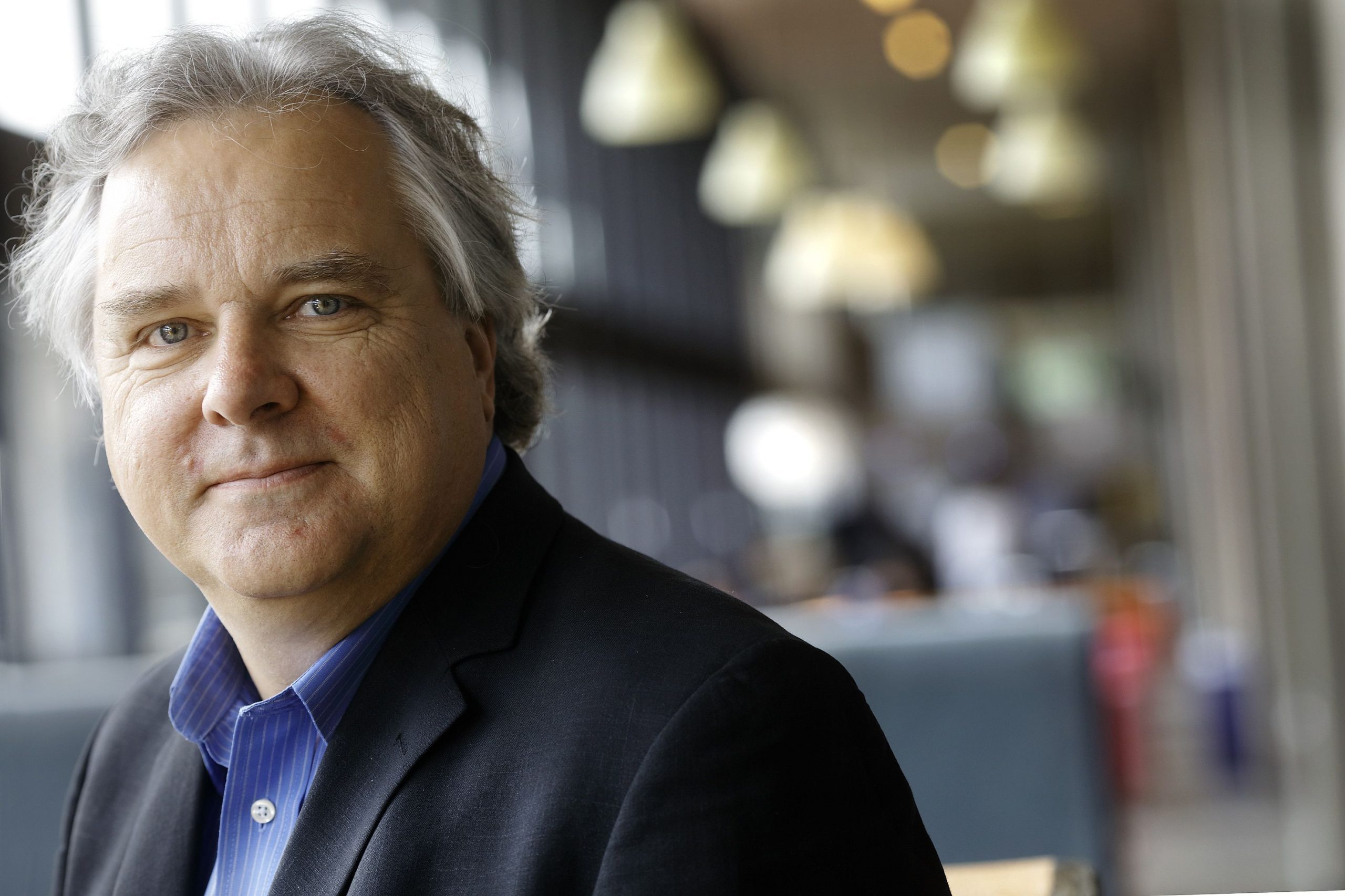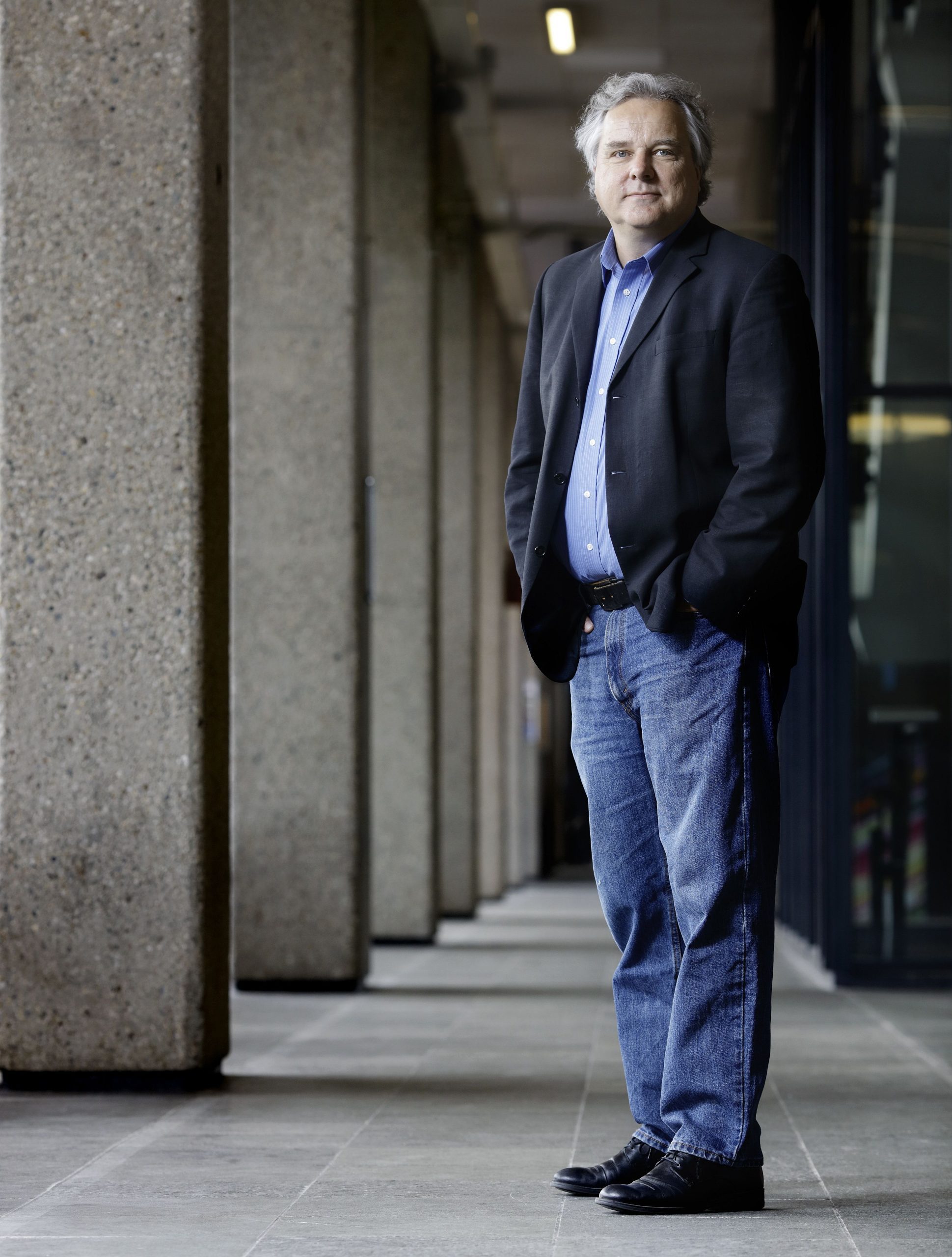TU Delft’s Global Initiative was launched in November 2015, with the goal of finding concrete solutions for problems faced by people in developing countries that will benefit everyone.
By working closely with local scientists and entrepreneurs, and using cutting-edge science and technology, they aim to make an impact and improve people’s lives. ‘Science for the benefit of people. All people. Worldwide,’ is their motto. Delta spoke with chairman, Nick van de Giesen, to find out more.
What is TU Delft’s Global Initiative?
Delft Global Initiative is one of four research-related initiatives at TU Delft seen as strategic fields. We have one in energy, one in health and one in deltas, infrastructures and mobility. This one is slightly different in the sense that it is more of a ‘bottom-up’ thing.
How did it come about?
Some colleagues thought it would be good if we had a similar initiative aimed at the Global South. The board of the university thought it was a good idea too, so that’s how it started. I like the fact that it’s really supposed to be, is, and will stay a ‘bottom-up’ thing. Traditionally there have always been a lot of connections between TU Delft and developing countries: student projects and research projects, teaching arrangements and things like that. There has always been that link, but it’s a bit here and a bit there. Part of the idea is to bundle it a bit and profit from that knowledge exchange, and partially to make it a bit more professional. So far it’s been very successful.
So it’s a multidisciplinary platform that connects the different departments on campus?
Yes, that’s an important part. It’s definitely multidisciplinary, but not necessarily interdisciplinary. We’re trying to bring together everyone on campus that has an interest.
Is that the main goal?
That’s the main goal internally. We also have a goal towards the outside world. We want to become a visible node in a global network, the go-to place when it comes to these kinds of issues. Also we want for people from the developing world to see that we’re an interesting partner to work with. Externally, our main way to operate is to work together with colleagues in developing countries on the basis of mutual respect. It sounds a bit heavy, but that’s the real idea, instead of saying ‘we have such a brilliant idea, we’re going to make poor people rich!’ That’s not what we’re about.
There are four key elements to the initiative: co-creation, global challenge, high-tech and local impact. Can you tell us more about those?
What I like is the high-tech research. Some people think that by dumbing down something high-tech so that it works elsewhere is fine. That’s not how we want to work. We want to be smart so that it also works there, and we want to do that by co-creating, which is easier said than done, but it’s working quite nicely at the student level at the moment. We are looking for impact as well. The philosophy of the present board is that we would like to see tangible outcomes, a product where you can see a result.
Can you explain what you mean by co-creation?
The example I like to give is this. We fly some people in from Fouta Djallon in Guinea, they’re some of the world’s best dancers, and they say ‘wow, these people don’t dance, that’s terrible!’ They start teaching us to dance, and when they finally think they’re getting somewhere they leave, and we stop dancing. They come back a few years later and are surprised that we’re not still dancing. People in developing countries get ill, yes, but we also get ill. Some colleagues in Africa don’t take malaria prophylaxis, some do. People get malaria, but it’s not necessarily a problem. It’s a perspective thing. It’s one thing to try and solve other people’s problems without involving them, but it’s one step further to first perceive something that’s a problem for other people that they may not perceive as such, and then start solving it. The best way is to see together what the problems are, and move from there.
Once you have co-created something, and you leave, how do you ensure that it’s maintained?
That’s why the business aspect is important. I know it doesn’t sound very sympathetic, but if you create something that is financially self-sustaining, that means along the whole chain there are people interested enough to keep it going. I’m not saying that’s the only way you can do it, but if you can manage that then you can be much more secure of it continuing.
How do you do that?
We’re working with one start-up in Rwanda that is looking at severe weather. We’re looking to see if we can make a lightning detection network. In Africa more people die from lightning than snake bites. In Europe that might not say much, but there it does. It was an interesting first intellectual study, and now they’re trying to bring it to the next level with our support. It’s a lot of trial and error, and we’re lucky here that we have that luxury to find patterns that work nicely, we’re trying to come up with different models.
It’s not just staff, students and researchers that are involved with the initiative but local companies too?
That’s right. We try to be a good hub in a network, and companies play an important role there. In this case we’d like to have professionalisation. Research accounts for maybe two-thirds of what we do. Valorisation, where we work with small companies and young spin-offs, is the rest. The best fun of course is when the students, researchers and spin-offs come together.
What specific steps are you taking to achieve your goals?
We have a number of PhD scholarships. We have three rounds, the first two took place already, and there will also be a third call.
So with the students and supervisors we already have a small community. Once a month we have a lunch to discuss things together. Then we have lectures and workshops that are a bit more in depth. Plus every now and again we have a special event, like our kick-off event last November. This is how we try and get people together, in an attempt to become more of a community. We’re always open to new ideas too.
How are you funded?
As one of the four strategic research topics at TU Delft, we are an area they wanted to invest in, so it’s first stream money. We do try to boost our position outside campus too. For example with NWO, the Netherlands Organisation for Scientific Research, we have some doubling where for every euro we spend they put in a euro too. One of the things I promised to do is look at the foundations. At TU Delft we don’t get much money in from big foundations, it’s difficult to get in to those. Cold calling doesn’t get you anywhere, we need to think of ways to get in and lobby and show what we can do to get external funding. So we are also looking to grow further.
So it’s a long term project?
We have a five year mandate, with an outlook to extending it to ten years if everything goes as we expect. It’s very interesting to see how many parts of campus are interested in this. We have good connections with the Ministry of Foreign Affairs, and with the professionalisation side of things and the network we have to offer there is widespread interest.
Who are the people behind the Delft Global Initiative?
I’m the chairman of the project, and Dr. Jennifer Kockx is the executive secretary. She does most of the real thinking and moving things forward. Plus we have a team to deal with communications, getting our story out, outreach to students and so forth. We also have a board that meets three times a year to discuss the bigger picture.
Are there any specific projects you want to highlight?
My favourite project is TAHMO, the Trans-African Hydro-Meteorological Observatory. One of my biggest frustrations was that there’s basically no data about weather and climate and water, so we started this initiative. Our objective is to have a network of 20,000 weather stations, and we have a different design that doesn’t need a technician. We put them at schools so teachers can maintain them, and we can educate people at the same time, and we’re trying to put together a business model to get some money for the data that we produce. We’re currently in about 13 countries in Sub-Saharan Africa. We’re at scale in Uganda, Kenya and Ghana and soon Nigeria. We also have stations in Guatemala and Costa Rica. The concept is transferable to other continents too, it’s really taking off. Just this summer, IBM and its subsidiary Weather Underground decided to boost station deployments in East and West Africa through a one million dollar investment in TAHMO.
Are there any other aspects of the project you want to tell us about?
Our rector thinks of what we are doing as development aid. I don’t see it that way. This one-directional movement is not going to get anywhere in general, you really need to work together. It’s a two-way thing. With that come people, including people coming this way. In the past ten years or so people have been looking at the BRIC countries: Brazil, Russia, India and China, which are coming up, and looking there for talent. But there must also be Einsteins in Sub-Saharan Africa, Central and Southeast Asia and also in Latin America. How do you find these people and get them to the top? This is something we’re also looking into, mining for talent. It makes sense, and we should not be the last ones knocking on the door. This is also a very exciting thing to be doing here at TU Delft.


CV
Dr. Nick van de Giesen has been a professor of water resources management at TU Delft’s Faculty of Civil Engineering and Geosciences since 2004. Between 1998 and 2004 he worked at the Center for Development Research at Bonn University, and was a post-doc at WARDA Cote d’Ivoire from 1994 to 1998. Prior to that, he earned his PhD from Cornell University for his work on wetland development in Rwanda, and his MSc in irrigation engineering from Wageningen University. With over 20 years of research in the field in Africa and Southeast Asia during the course of his career, he was appointed chairman of the Delft Global Initiative in 2015.



Comments are closed.